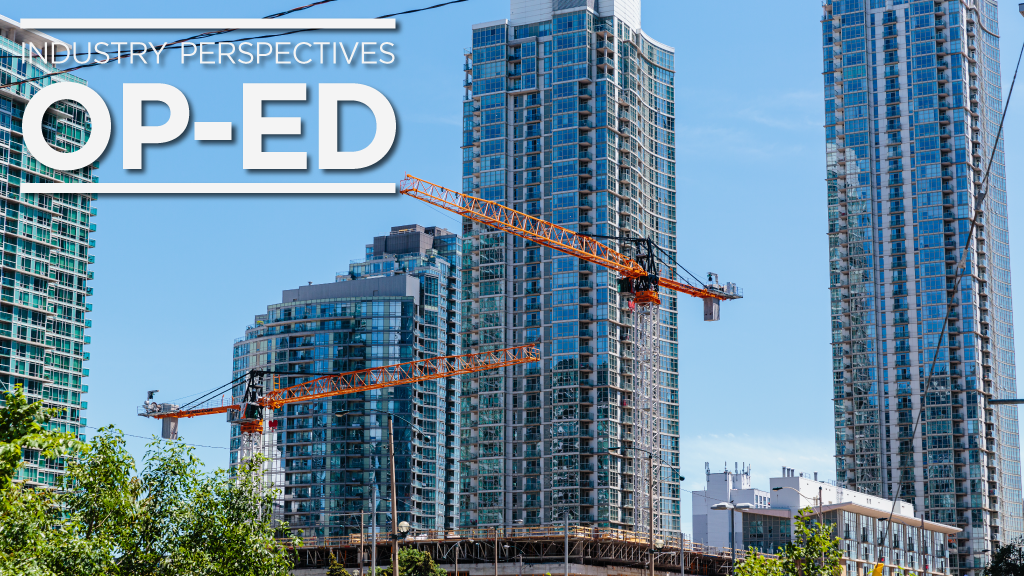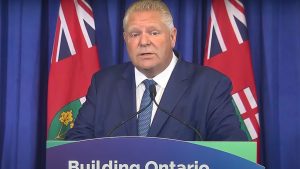The Strong Mayors, Building Homes Act proposed by the Ontario government is a progressive step towards boosting the supply of housing. Now we must get the City of Toronto rowing in the same direction.
The legislation, known as Bill 3, is another much-needed piece of the puzzle to address the housing supply and affordability crisis. It is geared to bring about changes that will streamline the decision-making process, speed-up approvals, allow the development of missing middle housing and address present discriminatory exclusionary zoning policies. Moreover, it could spur construction and approvals along transit corridors and stations as well as supporting infrastructure.
Premier Doug Ford and Housing and Municipal Affairs Minister Steve Clark deserve credit for their ongoing commitment and series of initiatives to seriously address the crisis and promise to build 1.5 million homes over the next decade. This new legislation will help in their quest to hit that target.
Previous initiatives include passage of the More Housing, More Choice Act and the More Homes for Everyone Act, the launch of the Housing Affordability Task Force and subsequent release of a report with 55 sweeping recommendations to increase supply, as well as minister’s zoning orders.
Bill 3 will give the mayors of Toronto and Ottawa veto powers over bylaws that conflict with provincial priorities. A council could still override the mayor’s veto with a two-thirds majority vote.
Additionally, the legislation would permit the mayor to appoint a chief administrative officer and hire and fire department heads, except for statutory appointments such as an auditor general, police or fire chief.
The government has indicated that such powers would eventually be granted to mayors in other large cities and noted that such systems work well in cities like Chicago, London, Los Angeles and Paris.
There has been pushback to the legislation. Community groups in Ottawa have called for the bill to be scrapped because it is undemocratic. NDP MPP Jeff Burch has said it falls short. The Association of Municipalities Ontario, meanwhile, wants the government to consult more broadly and extensively with the public and professional and political municipal organizations if it is considering extending the powers to other municipalities, to avoid unintended consequences.
But we are in a crisis and decisive action is needed. Bill 3 will help mayors deal with challenges such as antiquated zoning, NIMBYism and systemic bottlenecks in the development approvals process.
Allowing mayors in Toronto and Ottawa to establish new committees, appoint chairs and vice-chairs of committees and local boards, and reorganize departments is vital to streamlining the system and implementing policy according to clearly articulated objectives. The bill also provides the necessary checks and balances by ensuring that any vetoed vote must be justified with written reasons – and that a veto can be overridden by a two-thirds majority vote by council members.
Mayors will be allowed to propose budgets, which provides greater opportunity to ensure housing is a prime focus, and the legislation has the potential to prevent abuses of heritage registries.
Bill 3 also dovetails nicely with Toronto Mayor John Tory’s five-point re-election commitment to expand housing options by permitting missing middle housing, allow greater mid-range density on major roads in areas served by transit, and speed-up approval times by creating a development and growth division at city hall that will simplify the system tackle the slow approvals process.
Canada ranks 34th out of 35 OECD countries in the length of time it takes to get a general construction project approved, and 64th out of 190 by the World Bank on construction permitting. It is clear we need bold action to bring about systemic change. I am hopeful Bill 3 will be the catalyst.
While the province works to boost housing, though, Toronto council is hampering the process. The recent decision to hike development charges by a whopping 46 per cent will likely result in cancellations of projects. The increase will mean a hike of just over $43,000 for a single or semi-detached house in addition to the $94,000 that is already being collected.
Government taxes, fees and levies on residential construction in Toronto are already the highest in North America. If government charges alone were removed, the cost of a dwelling in Toronto would be 10-to-24-per-cent lower.
There is a false narrative suggesting that developers or builders will assume these costs. To the contrary, those who will bear the burden of these regressive increased costs are new homeowners, and renters entering the market, precisely the people that need the most assistance.
The escalating housing crisis has been detrimental to the public interest on many levels. If we are to have any chance at speeding-up housing construction, the City of Toronto must be in tune with the province.
Richard Lyall is president of the Residential Construction Council of Ontario. Send Industry Perspectives Op-Ed column ideas and comments to editor@dailycommercialnews.com.











Recent Comments